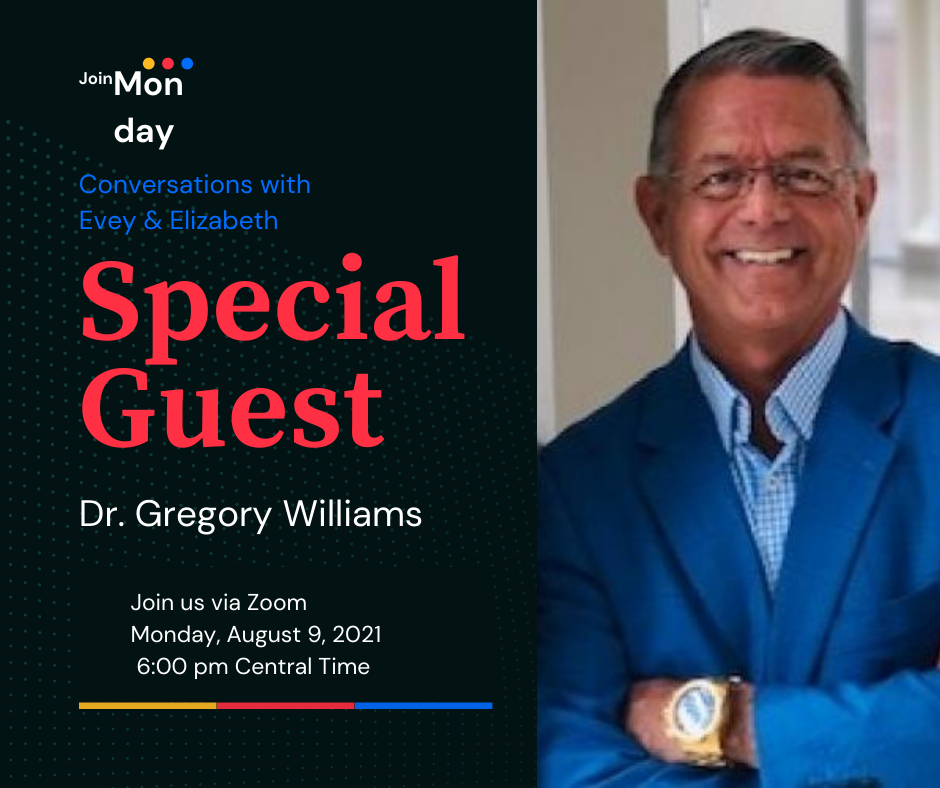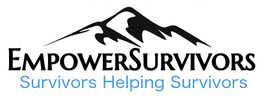By Evey Krammer-Carlson I make a conscious effort to be careful about what I read and listen to on the news. It’s a tricky line to walk sometimes because I’m inherently curious and interested in what is happening in current events around the world. I don’t want to live in a bubble. I want to know what’s happening, I want to be able to critically think about things so I can form my own opinions and have thoughtful conversations. When my symptoms were at their worst, and I was going through the throes of processing my memories, my therapist had me follow the “puppy and kitten rule,” meaning I could watch anything as long as it included cute puppies and kittens. That “rule” helped me minimize being triggered at a time when most of my days were spent experiencing flashbacks, anxiety, panic, and fear. I stayed away from intense news and was mindful of what I watched on tv and what movies I saw. Most of the time, I watched lots of comedy. Admittedly, there were times when I broke the rule. I sometimes sought out programs with violence that in some way mirrored my own abuse. Or I would pay attention to sensationalized cases in the media that were hard to avoid. Inevitably I would get triggered. As I began to manage my symptoms and felt some sense of safety the puppy/kitten rule was lifted. Because I had been so careful about what I ingested from media outlets for so long, I developed an avoidance for watching or seeking out certain information because I knew it may be triggering. Recently, there was a news story that I had done my best to avoid. When it first came out, people were outraged, and then the news cycle changed. I understand why that happens. There is so much out there every day, and each event is shocking and sad, and sometimes incomprehensible. But because my trauma is sort-of similar to the aforementioned news story, I was on high alert when I scrolled past it. I had a definite curiosity about the details but hadn’t read anything besides the headlines. Until the other day! The other day the headline changed and I knew that the very thing I feared when I first heard the story did, in fact, come true. I knew this person would never be convicted. I felt sick that even with awareness, this kind of trafficking still goes on, and in my mind, will probably continue to exist. Then I got triggered. I’m not used to those kinds of triggers any longer. There is plenty for me to navigate in my daily life, and anniversary times of the year, and I thought I was far enough along in my healing journey that I would be okay. But PTSD doesn’t operate that way. It doesn’t care that I was just reading an article, and it doesn’t care that this person had absolutely nothing to do with me. I had never heard of him. PTSD simply understands that my sense of safety and trust is altered because of the trauma I experienced, and my brain and body will go into the memory and protection mode automatically. After reading the article, I could tell that something was awry in my body/mind/spirit. I could tell things were stirred up in a way that I could spiral down the cycle of panic, fear, and shame. I closed the computer, went to yoga, had lunch with a friend, and remembered that today is a day when I’m fighting the tiger. Any shame over being triggered dissipated as I repeated my metaphorical mantra of support to myself. Seeing things written, or in movies, tv, or media can bring a sort of validation. A sense of see? I’m not making this up! When you are a trauma survivor you look for validation. My trauma seems so “out of the ordinary” that it’s extremely rare that I felt validation. But, my job on my healing journey is knowing that my truth is validation enough. I suspect there will be other times when I get triggered by the news. The intensity of my response will probably vary depending on what the triggers are, the time of year, and the present stressors in my life. I know what to do when the skeleton hands of the past pull at me, and I’m confident that I’ll remember that I will fight the tiger and win.
0 Comments
Affirmations/Intentions
Created by The Monday Night Conversations Group Here is a list of short positive phrases or statements that can help improve your well-being It can be helpful to remember to breathe after saying an affirmation. I Am Unique I Am worthy of success I Am open to receive my abundant life I Am enough I Am motivated I Am dedicated I Am imaginative I Am open to receiving self-compassion I Am worthy of receiving the love I give to others I Am kind I Am taking action in my…..(life, healing) I Am a cycle-breaker I Am not the negative things my inner-critic tell me I Am grateful for my journey and its lessons I Am safe I can overcome any obstacle and triumph over it I give myself permission to improve I do not have to be perfect I love and approve of myself and trust the process of life I accept myself as I am I Am a human being, not a human doing I Am doing all I can to my very best, to keep moving forward with my dreams I Am here and everything is okay I can take off my mask; It’s okay to not be okay I Am proud of myself I Am not my story I Am not what happened to me I Am not those things those that harmed me said I was I Am becoming a better version of myself, one day at a time I Am not comparing my insides to everyone else’s outsides I Am worthy of self-love I’m becoming more of who I really am All I need is within me I do not blame myself for my childhood experiences and trauma I release the feeling of guilt, hurt & shame What I want is already here or on the way I Am confident I Am able to choose the direction of my life I Am grateful for my body My mind, body & spirit belong to me I acknowledge and accept that healing is possible I will not be a victim-revictimized It’s okay for me to take of myself I allow myself to have all my feelings and emotions I am not my thoughts; I am not my emotions I allow myself to take a break It’s okay to take a break/to rest It’s okay to love my inner child/ren It’s okay to have fun I choose to know that I am lovable I release the shame and blame that was never mine, to begin with I remember that “no” is a complete sentence I accept myself as I am today May I inhale the present and future, and exhale the past We are beautiful and connected to all living things Join us
Monday, August 9, 2021, at 6:00 pm central time via Zoom for Conversations With Evey & Elizabeth!! Cost: Donation https://www.paypal.com/biz/fund?id=MRU3VP4L3KSFU This week we have a special guest, Dr. Gregory Williams, who will bring us through his story and add to great conversations! About Dr. Gregory Williams: My name is Dr. Gregory Williams and I am on the Senior Leadership Team at Baylor College of Medicine and Texas Children’s Hospital in Houston, Texas. I authored a book a couple of years ago called, “Shattered by the Darkness: Putting the Pieces Together After Child Abuse” that has drawn worldwide notice. The book tells of my daily childhood sexual abuse in the hands of my father and his friends until my 17th birthday. My decision to not reveal this horror to anyone until a few years ago caused many emotional, physical, and relational issues that I have learned from and still daily deal with. I have two books being released in August 2021 called “Overcoming the Darkness: The Road Map to Hope” and the youth version of the book called, “When the Dark Clouds Come: The Road Map to Hope.” I also host a weekly LIVE radio show called, “Breaking the Silence with Dr. Gregory Williams” and it is heard worldwide by over 1.7 million listeners LIVE each Sunday evening at 8:00 pm Central Time on the BBS Radio Network, iHeart Radio, YouTube LIVE, Spotify, and many other LIVE platforms. I now teach workshops, seminars, and webinars literally around the world each and every week. Register in advance for this meeting: us02web.zoom.us/meetin...AetA_6uHylmrarnexWzM After registering, you will receive a confirmation email containing information about joining the meeting. ******** This Meeting Will Be Recorded ******** Learn more about EmpowerSurvivors program Conversations with Evey & Elizabeth and all we have to offer! https://www.empowersurvivors.n...ic-conversation.html Do you want to be our next guest? Contact Evey at : [email protected] Dissociation is an experience where your attention and emotions are disconnected from the present moment.It’s like you’re here, but your mind and emotions are somewhere else. This is a general term and experience. I talked in a previous video about depersonalization and derealization. Those are specific kinds of dissociative experiences. With depersonalization you feel detached or disconnected from yourself so you may feel like you’re observing yourself. With derealization, you feel disconnected from your environment. You may feel like the room you’re in isn’t real or that you’re in a different place than you really are. An example of this is experiencing a car accident where you smelled the burning rubber of your tires. Then whenever you are riding in a car you think you smell the rubber again. That is an example of a dissociative experience you can have after the trauma experience. But sometimes you can dissociate during a traumatic event. This can be your mind’s way of protecting you from a situation where there is no escape. This is pretty common during physical or sexual trauma when you can’t get away. In order to endure the assault, you brain turns down your response to pain and numbs your emotional response. In your mind you may go to another place such that it feels like it’s really not happening to you. During the traumatic experience, that kind of reaction helps you survive it. But then sometimes dissociation becomes a built in defense mechanism that you employ in other situations that are unrelated to trauma. For example, you can be triggered to feel disconnected or numb in response to something that reminded you of the trauma, even if you weren’t consciously aware of the trigger. You can just feel empty all the time and not know why. Smells and sounds can remind you of the trauma in a way that your body responds with anxiety and fear, but you don’t always put it together why you’re feeling anxious. It’s like the fragmented memories can come flooding back in response to sights, sounds and touch. Anxiety is another trigger that can send you into a dissociative state. So let’s say you are under a lot of stress at work. You can have trouble relating to people at work because with the added stress, you start zoning out at work. Or you start withdrawing from people because you feel like you’re a stranger and your coworkers make you feel uncomfortable. What can you do about this? The best treatments are trauma-focused cognitive behavior therapy, prolonged exposure, and eye movement desensitization and reprocessing. One self-help approach is to use grounding techniques. Grounding techniques bring your awareness back to the present moment where you ARE safe. It’s like getting your bearing and refocusing. You can use sensory grounding or cognitive grounding. Sensory grounding uses the five senses to bring you back to the present moment and cognitive grounding uses your thoughts to remind yourself that you ARE in a safe place. Sensory grounding exercises: The 5-4-3-2-1 sensory exercise. Use a grounding smell that can bring your attention back to the present. Carry a sensory grounding object in your pocket. Splash cold water on your face and neck. Cognitive grounding exercises: Show yourself that you’re safe. Orient yourself to time and place. Repeat an inspiring quote or saying that’s comforting to you. Say coping statements like I can handle this, my situation is so much better now, these feelings with pass, etc. Want to know more about mental health and self-improvement? On this channel I discuss topics such as bipolar disorder, major depression, anxiety disorders, attention deficit disorder (ADHD), relationships and personal development/self-improvement. I upload weekly. If you don’t want to miss a video, click here to subscribe. https://goo.gl/DFfT33 Disclaimer: All of the information on this channel is for educational purposes and not intended to be specific/personal medical advice from me to you. Watching the videos or getting answers to comments/question, does not establish a doctor-patient relationship. If you have your own doctor, perhaps these videos can help prepare you for your discussion with your doctor. "Today we are going to talk about the 5 signs of dissociation because it’s more common than most people think. Research shows us that over 50% of people will have at least one dissociative episode in their lifetime, so we should all be a little more informed about what it is and what it isn’t. And all the more reason to share this video! 1. Memory loss 2. Feeling like you are watching yourself do something & you don’t have any control over it 3. Feeling lightheaded 4. Not feeling pain 5. Feeling like we don’t know who we are Dissociation: why it happens and what we can do about it " |
Archives
May 2024
Categories
All
|





 RSS Feed
RSS Feed